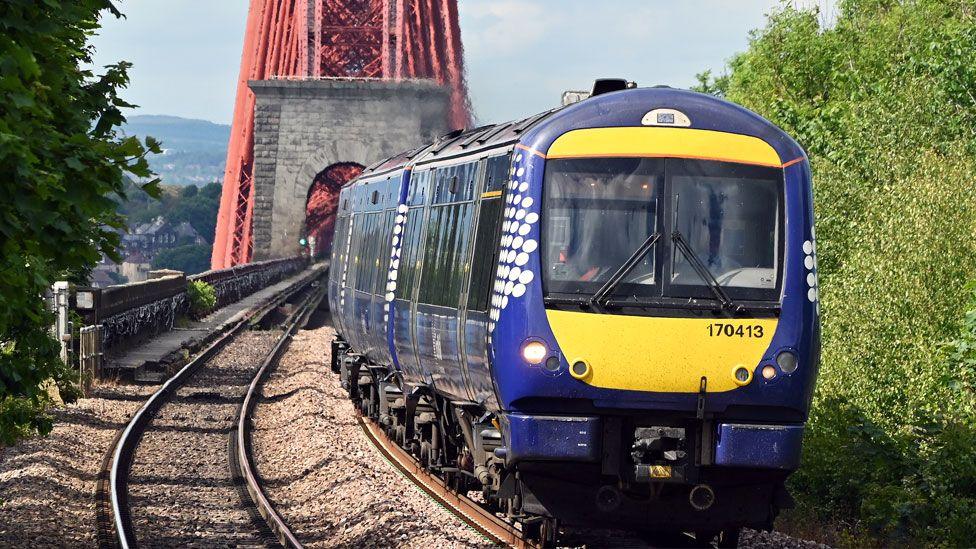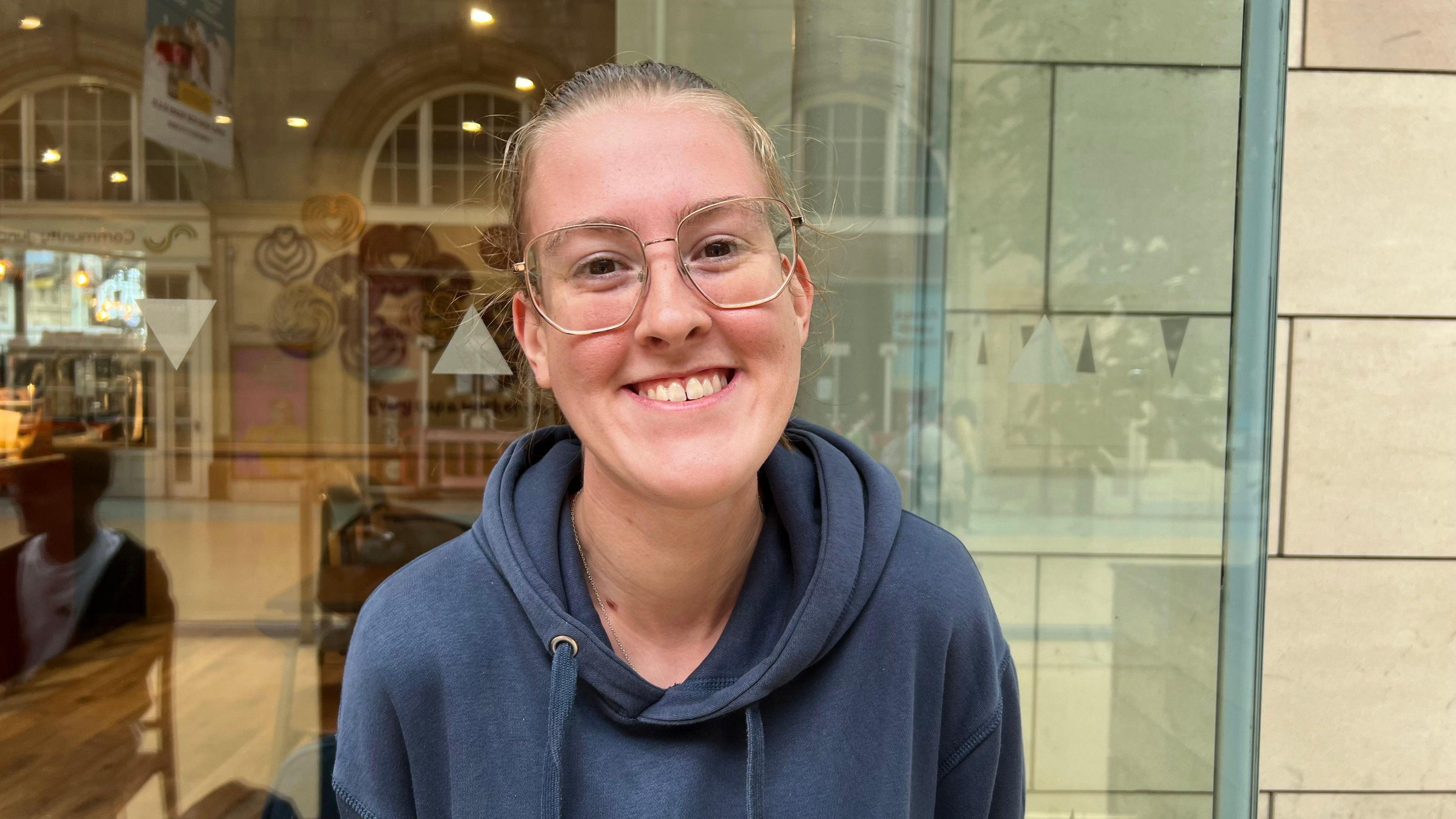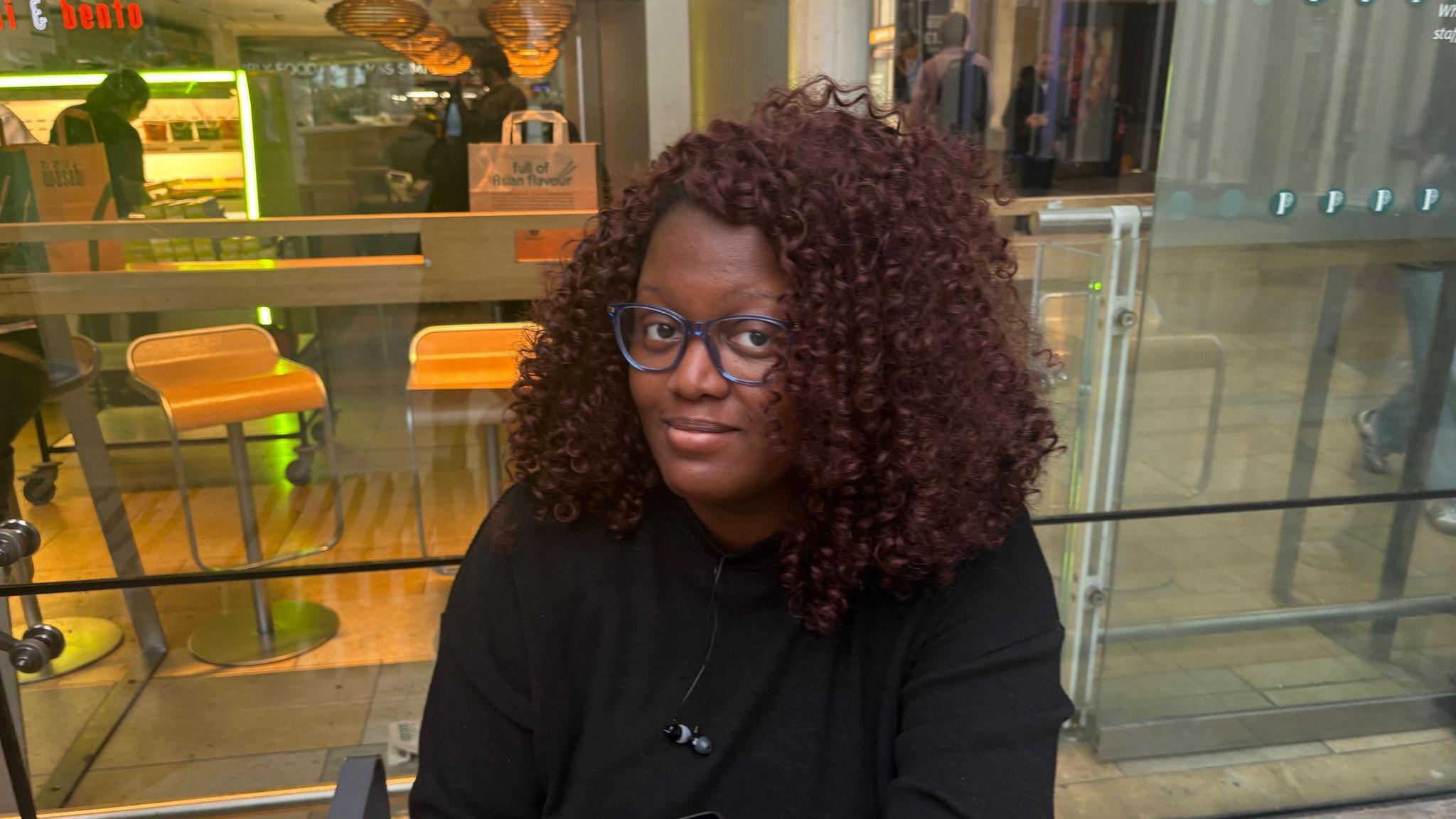Scotland scraps peak rail fares - will the rest of the UK follow?

- Published
Train passengers no longer have to pay higher prices for peak time tickets on ScotRail, raising the question over whether the rest of the UK could follow suit.
While some passengers told the BBC they would welcome the prospect of cheaper tickets, experts are divided over whether it could push prices up overall or result in overcrowded carriages.
Why do we have peak times?
The peak/off-peak system is designed to discourage passengers from getting on busier trains, by making it more expensive to travel during the commuter rush before 9am and between 5pm and 7pm.
However, the pandemic working from home and rail usage has not yet returned to pre-Covid levels so peak travel times are less busy than they used to be.
David Ross, chief operating officer at ScotRail - which is owned by the Scottish government - told BBC Radio 4's Today programme that the shift meant it could scrap peak charges as "there's plenty of capacity for people to travel with us".
Could peak charges be scrapped in the rest of the UK?

Unlike the Scottish system, English railways are run by a mix of publicly-owned firms and private contractors which the government has pledged to nationalise as their contracts end.
Ticket prices are set by the Department for Transport (DfT) so if the government wanted to scrap peak fares across England it could.
London North Eastern Railway (LNER), which is run by the government, is experimenting with simpler charges across parts of its network, external - with the pilot due to end on 7 September.
The DfT has not said whether or not it would try removing peak charges across the whole English network, but it has said it wants to reform the way tickets are priced as it nationalises the system.
"We know the current labyrinth of fares and prices can be confusing, which is why we want to make it easier for passengers to find the right ticket for their journey," a transport spokesperson said.
The Rail Delivery Group, which represents rail firms, said the industry was "continuing to improve fares to reflect how people live and travel today, including expanding Pay As You Go areas and offering Flexi season tickets".
Meanwhile, Transport for Wales (TfW) and Translink operate the Welsh and Northern Irish railways and are run by their devolved governments.
TfW told the BBC it was "committed to making train travel more affordable" but did not say whether it was considering scrapping peak fares.
It pointed to its pay as you go (PAYG) contactless payment option on the Metro across South East Wales which allows daily and weekly fare capping. TfW is rolling it out in north-east Wales next year.
The BBC has approached Translink for comment.
Peak rail fares scrapped on ScotRail trains
- Published1 September
Will Labour’s plan make train tickets cheaper?
- Published23 May
Would it make ticket prices cheaper?
ScotRail's move has reduced prices - an anytime day return ticket from Glasgow to Edinburgh has gone from £32.60 to £16.80.
ScotRail's Ross said this means "passenger journeys will increase and over time it will pay for itself", but rail experts are divided.
If passenger numbers remain the same ticket prices may need to go up overall to make up for the lost revenue, some have warned.
The other issue is what scrapping peak charges would mean for some already overcrowded routes.
"Clearly, the rush hour trains are already packed. And if you remove the disincentive to travel, it would mean more would want to travel on those trains," said Bruce Williamson from campaign group Railfuture.
As such, he said any removal of peak charges would need to come alongside investment in increasing capacity of the rail network - something which would cost the government money.
'I can't afford to travel during peak times'

Elizabeth Wilson chooses to travel during off-peak times to save money
Elizabeth Wilson, 18, from Hull, is due to start a maths degree course at Newcastle University and believes ScotRail's initiative should be "standard across the whole of the country".
"There shouldn't be a difference in price just because of when you travel. At the end of the day you're doing the same journey, it shouldn't matter what time you do that journey."
Elizabeth says even with her 16-25 railcard "train fares are really expensive especially for students who don't have much money".
"I'm often having to wait until later so I can travel because I can't afford to travel during peak times," she adds.
She says the current cost of rail fares mean "you're almost forced to buy a car because it's much easier".

Kara Smith drives to work because she feels train ticket prices are too expensive
Kara Smith, 23, from Leeds, works at Selfridges in Manchester and says she mainly drives to work because the peak time commute was "very expensive".
"I used to see most of my wages going on train fares," she says.
"I'd use the train more often if the fares were cheaper as it's more convenient. But because of the prices it just makes more sense to drive."

Mariama Bundu says peak train prices are "ridiculous"
Mariama Bundu is from Newport in south Wales says she tends to travel at peak times and found the price "ridiculous".
She spoke to the BBC at Paddington station in London where she was changing trains, having spent almost £200 on a return journey from Newport to Cambridge.
"Sometimes, I have to travel in first class because it's difficult to get seats [in standard class during peak times]," she added.
Additional reporting by Pritti Mistry, Simon Browning and Emer Moreau